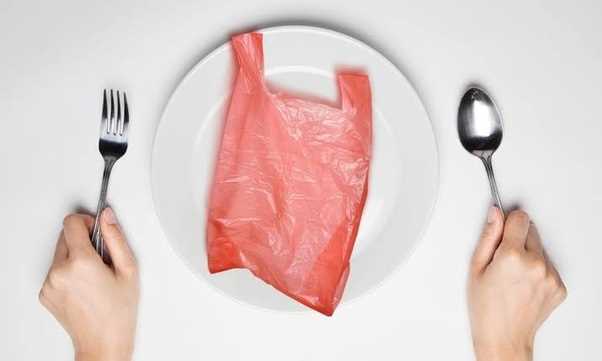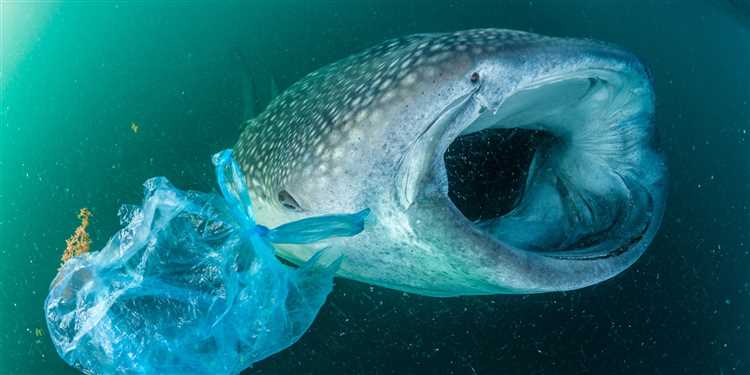Plastic has become an integral part of our daily lives, and its use is pervasive in numerous industries worldwide. From packaging materials to household products, plastic is ubiquitous. However, the consequences of our plastic consumption extend beyond environmental concerns. Ingesting plastic, whether unintentionally or through contaminated food and water sources, raises serious health questions. This article delves into the potential dangers of eating plastic and explores the impact it may have on our bodies.
Plastic pollution has reached unprecedented levels in our oceans, rivers, and even our bodies. Microplastics, tiny fragments of plastic less than 5 millimeters in size, have infiltrated our food chain through aquatic life and contaminated water sources. As a result, humans unknowingly ingest these microplastics, which can accumulate in our digestive system.
But how does eating plastic affect us? The potential health risks associated with ingesting plastic have become a topic of growing concern. Studies have shown that plastic particles can leach harmful chemicals into the human body, leading to various health issues. These chemicals include endocrine disruptors, which can interfere with hormone function, as well as carcinogens, which have the potential to cause cancer.
Researchers are still exploring the long-term effects of plastic ingestion on human health. While some studies suggest a potential link between plastic consumption and adverse health outcomes, further research is needed to fully understand the extent of the dangers. Nonetheless, it is clear that reducing plastic consumption and finding sustainable alternatives are crucial steps towards safeguarding our health and the environment.
- Can Eating Plastic Be Harmful?
- Potential Risks
- Possible Health Effects
- Prevention and Mitigation
- Exploring the Dangers of Ingesting Plastic
- The Impact of Plastic Consumption on Human Health
- 1. Chemical exposure:
- 2. Digestive system problems:
- Understanding the Potential Risks of Ingesting Plastic
- Potential Chemical Exposure
- Gastrointestinal Problems
- FAQ:
- What are the dangers of ingesting plastic?
- How does plastic get into our food and water?
- What are some long-term health effects of ingesting plastic?
- Are there any studies that show the impact of ingesting plastic on human health?
- How can we reduce our plastic consumption to protect our health?
- Is it dangerous to eat plastic?
Can Eating Plastic Be Harmful?

Plastic pollution is a growing concern worldwide, and its impact on the environment is widely recognized. However, the effects of plastic ingestion on human health are still being studied and understood. While it is clear that ingesting large amounts of plastic can be harmful, the potential risks associated with consuming smaller amounts of plastic are less known.
Potential Risks
When plastic is ingested, it can potentially leach harmful chemicals into the body. Some plastics contain additives such as phthalates and bisphenol A (BPA), which have been linked to various health issues, including hormone disruption and reproductive problems. These chemicals can be released when the plastic is exposed to heat, friction, or acidic environments.
In addition, plastic particles can act as carriers for other pollutants in the environment. As plastic debris breaks down into smaller pieces, it can attract and absorb toxic substances like pesticides and heavy metals. When these plastic particles are ingested, these toxins can be transferred into the body.
Possible Health Effects
There is evidence to suggest that ingesting plastic particles can have negative health effects. Studies on animals have shown that plastic ingestion can lead to inflammation, liver damage, and reproductive issues. Some research also suggests a possible link between plastic ingestion and certain types of cancer.
Furthermore, the effects of long-term plastic consumption are still largely unknown. As plastic pollution continues to increase, it is crucial to understand the potential long-term health consequences of consuming plastic.
Prevention and Mitigation
To reduce the risks associated with plastic consumption, it is important to take steps to limit exposure. This can include avoiding single-use plastics, such as bottles and bags, and using alternative materials whenever possible. Proper recycling and waste management practices can also help to reduce the amount of plastic entering the environment and food chain.
Research and regulation are also necessary to address the issue effectively. More studies are needed to fully understand the health effects of plastic ingestion and to develop guidelines and regulations to protect both human health and the environment.
In conclusion, while the full extent of the risks associated with eating plastic is still being investigated, it is clear that plastic ingestion has the potential to be harmful. Taking steps to reduce plastic consumption and promote sustainable practices is crucial for protecting both human health and the planet.
Exploring the Dangers of Ingesting Plastic
Ingesting plastic can have serious health consequences for both humans and animals. Plastic is not biodegradable and can persist in the environment for hundreds of years. When plastic debris ends up in marine environments, it can be mistaken for food by marine animals. Marine animals, such as turtles, seabirds, and fish, may eat plastic bags, straws, or other plastic items, leading to various health issues.
One of the major dangers of ingesting plastic is the physical damage it can cause. Sharp plastic fragments can puncture the digestive tract or cause internal injuries. If ingested in large quantities, plastics can create a blockage in the digestive system, preventing normal food intake and leading to malnutrition and starvation.
In addition to physical harm, plastic can also pose chemical risks. Many plastics contain toxic substances, such as phthalates and bisphenol A (BPA). These chemicals can leach out of the plastic and enter the body when consumed. Studies have linked the ingestion of these chemicals to various health problems, including hormonal disruptions, reproductive issues, and an increased risk of certain cancers.
Furthermore, plastic can act as a sponge for harmful pollutants in the environment. Plastics can absorb and concentrate toxic chemicals, such as pesticides and heavy metals, from the surrounding water. When ingested, these chemicals can be released into the body, potentially causing poisoning or other adverse effects.
Not only does ingesting plastic pose risks to individual animals, but it also has wider ecological impacts. When marine animals consume plastic, it can accumulate in their tissues. This can lead to a phenomenon known as biomagnification, where the concentration of toxins increases as they move up the food chain. As a result, animals higher in the food chain, including humans, can be exposed to higher levels of plastic-related toxins.
Given these dangers, it is crucial to reduce plastic pollution and find sustainable alternatives to plastic. Raising awareness about the risks of ingesting plastic and promoting responsible plastic waste management can help protect the health of ecosystems and prevent the potential adverse effects on human health. Innovative solutions, such as bioplastics and improved recycling practices, can help reduce the prevalence of plastic in the environment and mitigate the risks associated with plastic ingestion.
The Impact of Plastic Consumption on Human Health

Plastic consumption has become a significant concern for human health due to the potential risks it poses. When plastic is ingested, whether intentionally or unintentionally, it can have detrimental effects on various bodily systems.
1. Chemical exposure:

Plastics are often made with chemicals such as phthalates and bisphenol A (BPA), which have been linked to hormone disruption and other adverse health effects. When plastic is consumed, these chemicals can leach into the body and accumulate over time, leading to long-term health consequences.
2. Digestive system problems:

Plastic consumption can cause digestive system problems such as indigestion, bloating, and constipation. The ingestion of microplastics, which are tiny plastic particles, can also potentially damage the lining of the intestines and disrupt the balance of gut bacteria, leading to gastrointestinal issues.
Additionally, plastic consumption has been associated with an increased risk of certain diseases. Research suggests that exposure to plastic chemicals may contribute to the development of obesity, diabetes, cardiovascular diseases, and certain types of cancers.
Furthermore, plastic consumption has indirect effects on human health. The production, use, and disposal of plastic contribute to environmental pollution, leading to air, water, and soil contamination. These pollutants can then enter the food chain, ultimately affecting human health through the consumption of contaminated food and water.
It is important to raise awareness about the potential dangers of plastic consumption on human health. Taking steps to reduce plastic consumption, such as using reusable alternatives and recycling, can help mitigate these risks and protect both individual and public health.
Understanding the Potential Risks of Ingesting Plastic
Plastic pollution has become a significant environmental concern, with plastic waste finding its way into various ecosystems, including the ocean. The impact of plastic on marine life has been extensively studied, but the potential risks of ingesting plastic for humans are still being explored.
Potential Chemical Exposure

When plastic is ingested, there is a possibility of chemical exposure. Plastics are made up of various chemicals, including additives such as phthalates and bisphenols, which can leach into the body upon ingestion. These chemicals have been linked to adverse health effects, such as hormone disruption and reproductive disorders.
Gastrointestinal Problems
Ingesting plastic can also lead to gastrointestinal issues. The ingestion of large plastic fragments may cause blockages in the digestive system, leading to discomfort, pain, and potential complications that may require medical intervention or surgery.
| Potential Risks of Ingesting Plastic | Effects |
|---|---|
| Chemical Exposure | Hormone disruption, reproductive disorders |
| Gastrointestinal Problems | Pain, discomfort, blockages |
Additionally, smaller plastic particles, such as microplastics and nanoplastics, may have the potential to pass through the gastrointestinal tract and enter the bloodstream. The long-term health effects of these particles are still being studied, but there is concern that they could accumulate in organs and tissues, potentially leading to inflammation and other health complications.
It’s important to note that the extent of the risks associated with ingesting plastic is still uncertain, as research in this area is ongoing. However, minimizing plastic consumption and promoting proper waste management practices can help reduce the potential risks to both the environment and human health.
FAQ:
What are the dangers of ingesting plastic?
Ingesting plastic can have several dangers. Plastic can contain toxic chemicals, such as phthalates and bisphenol A (BPA), which can leach into the body when ingested. These chemicals have been linked to various health issues, including hormone disruption, reproductive problems, and certain types of cancer. In addition, plastic can cause physical harm to the digestive system, leading to blockages, ulcers, and inflammation.
How does plastic get into our food and water?
Plastic can get into our food and water through various ways. One major way is through plastic packaging, such as bottles, containers, and wraps, that come into contact with our food and beverages. Plastic can also be released from other plastic products, such as utensils or storage containers, especially when these products are heated. Furthermore, plastic microfibers can be released from synthetic clothing during washing and can enter the water supply. These microfibers can then accumulate in aquatic organisms, which can eventually make their way into our food chain.
What are some long-term health effects of ingesting plastic?
The long-term health effects of ingesting plastic are still being studied, but they could be significant. As mentioned earlier, the toxic chemicals found in plastic can lead to hormone disruption, reproductive problems, and cancer. Additionally, the accumulation of plastic in the body over time can lead to chronic inflammation, immune system dysfunction, and organ damage. Further research is needed to fully understand the long-term health effects of ingesting plastic.
Are there any studies that show the impact of ingesting plastic on human health?
Yes, there have been several studies that show the impact of ingesting plastic on human health. One study published in Environmental Science & Technology found that people who regularly drink from plastic bottles may be ingesting up to 90,000 particles of microplastics each year. Another study published in the journal PLOS ONE found that microplastics were present in human stools, indicating that they can accumulate in the digestive system. These studies highlight the potential health risks associated with ingesting plastic.
How can we reduce our plastic consumption to protect our health?
There are several ways to reduce plastic consumption and protect our health. Firstly, we can opt for reusable alternatives to single-use plastic products, such as using a refillable water bottle instead of buying bottled water. Secondly, we can choose products with minimal plastic packaging or package-free options. Additionally, we can avoid heating plastic products or using them in the microwave, as this can increase the leaching of harmful chemicals. Lastly, we can support initiatives and policies that promote the use of biodegradable and sustainable materials as alternatives to plastic.
Is it dangerous to eat plastic?
Yes, eating plastic can be very harmful to your health. When ingested, plastic can release toxic chemicals that can cause serious health problems.